119 videos match your search.
 |
Suba Thomas In this talk, Suba Thomas showcases several examples of new boards available in the Microcontroller Kit 2.0 that were developed based on user feedback and discusses future planning. |
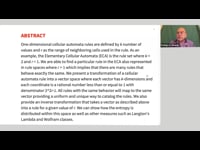 |
Rodrigo Obando One-dimensional cellular automata rules are defined by k number of values with r as the range of neighboring cells used in the rule. As an example, the elementary cellular automata (... |
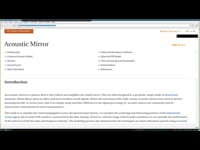 |
Oliver Rübenkönig In this talk, Oliver Ruebenkoenig describes how to build multi physics models in the Wolfram Language to simulate multiple interacting physical phenomena and provides you with the capabilities to build ... |
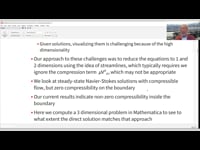 |
Jerry Thomas As a next step in investigating decision process theory, Jerry Thomas considers steady-state non-streamline solutions to a 3D model. The equations are modified Navier–Stokes equations. Using NDSolve, he shows that these steady-state solutions are not dissimilar to fluid flow solutions despite the modifications. The solutions confirm a result from looking at 2D streamline solutions: they yield stable structures, ones ... |
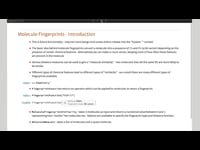 |
Jason Biggs In this talk, Jason Biggs introduces the concept of molecule fingerprints and shows the different fingerprint types in Version 12.2 of the Wolfram Language, as well as showcasing many enhancements to ... |
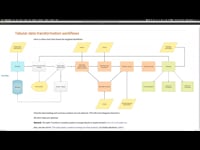 |
Anton Antonov In this talk, Anton Antonov shows and compares data-wrangling examples in different programming languages using different packages, relying heavily on external evaluators and voice-recognition features considered experimental at the time ... |
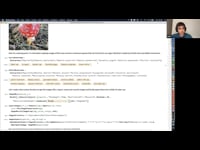 |
Jofre Espigule-Pons Current smartphones are powerful enough to run neural networks locally without a cloud server connection. Deploying and running a custom neural network on your phone depends on your phone's operating ... |
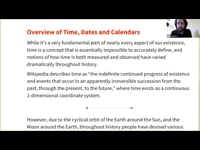 |
Nick Lariviere |
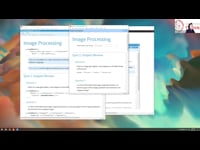 |
Sylvia Haas, Arben Kalziqi Join Stephen Schroeder, Sylvia Haas and Arben Kalziqi as they discuss progress on a new set of courseware tools—currently under development at Wolfram Research—which will enable instructors to ... |
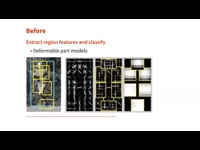 |
Giulio Alessandrini In this talk, Giulio Alessandrini shows how to use the Wolfram Language to build a full object detection pipeline, import or generate the necessary data and create a model to ... |
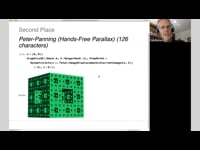 |
Chris Carlson |
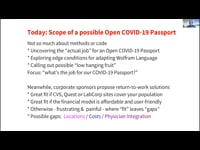 |
John Odden |
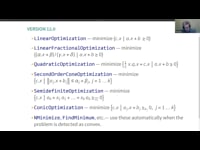 |
Rob Knapp This presentation by Rob Knapp focuses on optimization functionality in the Wolfram Language. Examples are shown to highlight recent progress in convex optimization, including support for complex variables, robust optimization ... |
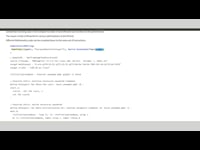 |
Mark Sofroniou Mark Sofroniou gives an introductory overview of the design and current state of the Wolfram Compiler. He outlines the benefits of using an intermediary representation that maps to LLVM and ... |
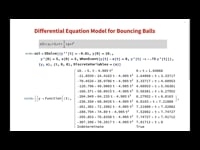 |
Charles Pooh |
 |
Jan Brugard |
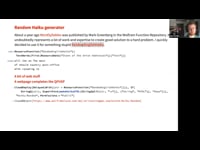 |
Bob Sandheinrich A quick tour of a few fun side projects Bob Sandheinrich has made including Pi Slices Daily, a COVID dashboard and a baseball-player network story creator. He will show you ... |
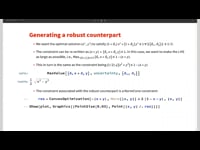 |
Paritosh Mokhasi In this presentation, Paritosh Mokhasi describes robust optimization, a framework for solving optimization problems in the presence of uncertainties. He covers the concept of robust optimization and how the problems ... |
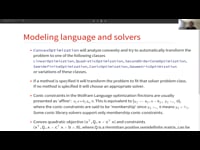 |
Nina Dokeva This presentation features Nina Dokeva, who describes the extensible framework that is used to interface optimization solvers to the Wolfram Language optimization functions. The presentation includes examples of how to ... |
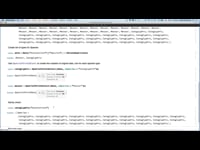 |
Gosia Konwerska In this talk, Gosia Konwerska explores existing and upcoming Wolfram Language functionality designed for analysis and modeling of spatial point data. |